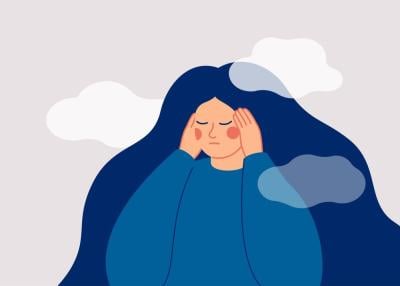OCD Strategies: We Do Not Hang Out With Bullies
OCD Strategies: We Do Not Hang Out With Bullies

In the practice of Cognitive Behavioral Therapy (CBT), upsetting moods and negative behaviors are overcome using our thoughts and logic. CBT therapists help clients identify irrational, upsetting core beliefs, and then use rational counter thoughts to defeat those beliefs. This strategy has been shown in research to be quite effective; and the reason is obvious - feelings change, but facts don't. A solid fact is preferable to shaky emotional ground any day.
Yet, in the treatment of OCD, the strategy can backfire. OCD is brutal. Obsessions seek to make you rethink everything; doubting your beliefs, perceptions, or emotions (as in Relationship OCD), your actions (Safety and Contamination OCD), and even your morals and self-identity (Harm OCD, Homosexuality OCD). So, MORE thinking, even seemingly rational thinking, does not equate to LESS ruminating. We find that, typically, it's unhelpful to try to reason with your intrusive thoughts.
However, CBT has been found to be, in general, the most effective psychotherapy for anxieties. So, what to do? It's not a matter of a different therapeutic modality, but rather a different strategy. One of the strategies is this: We do not hang out with bullies.
You remember the bully from school. They call your name, demean you, undermine your confidence. Bullies notice where their victim’s weaknesses lie, and attack where they’re vulnerable. There’s the verbal harassment, the continual taunting. And the threats – there’s always an implication, overt or covert, that if you don’t comply, things will get worse.
But as we all know, giving in to a bully does not engender kindness in return, but rather, more bullying. When the victim acquiesces, the bully may back down for a moment, only to return the next day with more taunts, more demands.
The same is true for the “bully” that is your OCD thoughts. These thoughts are not helpful things to consider in order to improve your life. This bully will only serve to make you fearful, intimidated, and immobilized. OCD holds out a promise of freedom and peace; while in reality, compulsions deliver only momentary relief followed by more obsessive thoughts, and increasingly intense compulsive urges. In therapy, our strategy shifts from examining thought content details to determining the pattern these thoughts take, and to learn to recognize that pattern for the bully it is.
For example, a common anxious thought might be fear of failing an exam. In non-OCD patients, psychologists might help the patient remind herself of the amount of preparation she did, her history of being a successful student, or the fact that one grade does not make or break a semester. These cognitive interventions refocus the mind on the facts, or the “most likely” scenario, as opposed to the worst-case scenario.
But in OCD, the strategy is completely different. An OCD patient faces an exam, and that’s where the mental bullying begins:
“You better wear your lucky sweater – and where is it, by the way?” the bully might ask.
“Have you really studied enough?”
“better check with your professor about that question again”
And so on.
So the OCD bully’s victim feels compelled to engage in superstitions. Or she may engage in repeated checking behaviors, such as asking the professor and her classmates unending clarifying questions. These may provide momentary reassurance, while long-term setting the student up for increased anxiety, and decreased confidence in her own abilities.
Therapeutically, the goal is NOT to reason with the fear. The goal is to help the patient see that these thoughts follow the same M.O. as previous OCD-driven thoughts, and to refuse to entertain the OCD-driven demands.
Just as you would not endeavor to build your life around what a 7th grade bully said about you, you don't build your life around the mental and behavioral hoops OCD is trying to make you jump through. You learn to listen past the content of the thoughts, recognizing the pattern and realizing you don't need to engage. (Remember how engaging the 7th grade bully just emboldened them?) Instead, you see the bully coming and shut the door. There’s no reason to hear what he has to say.
This takes practice and work in therapy, of course. But this strategy prevents OCD sufferers from expending effort on futile missions. Once this strategy is adopted, we can proceed to other parts of the treatment, such as Exposure and Response Prevention (ERP).
OCD treatment is not easy; but, in some ways it is simple:
- Recognize the bully
- Do not give him your lunch money
This post is presented in collaboration with ADAA's OCD and Related Disorders SIG. Learn more about the SIG.



















